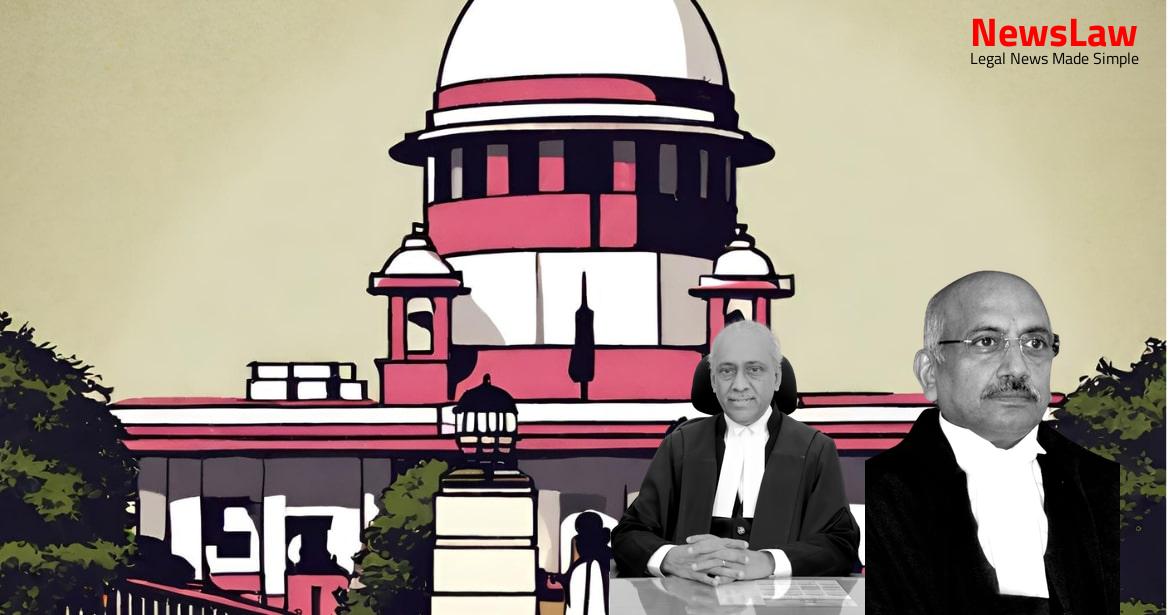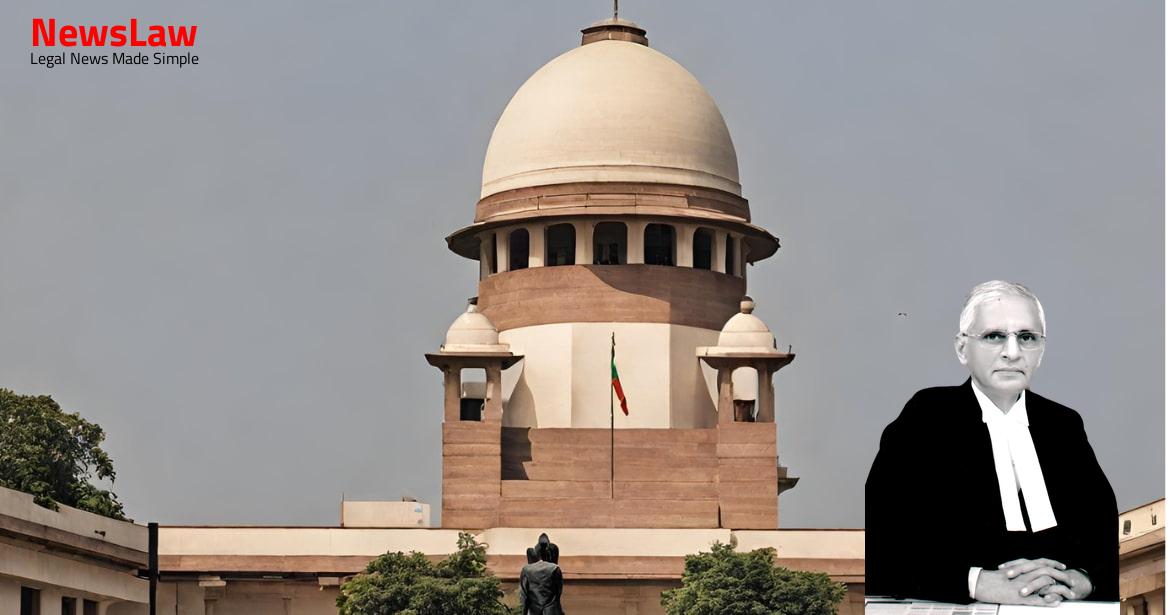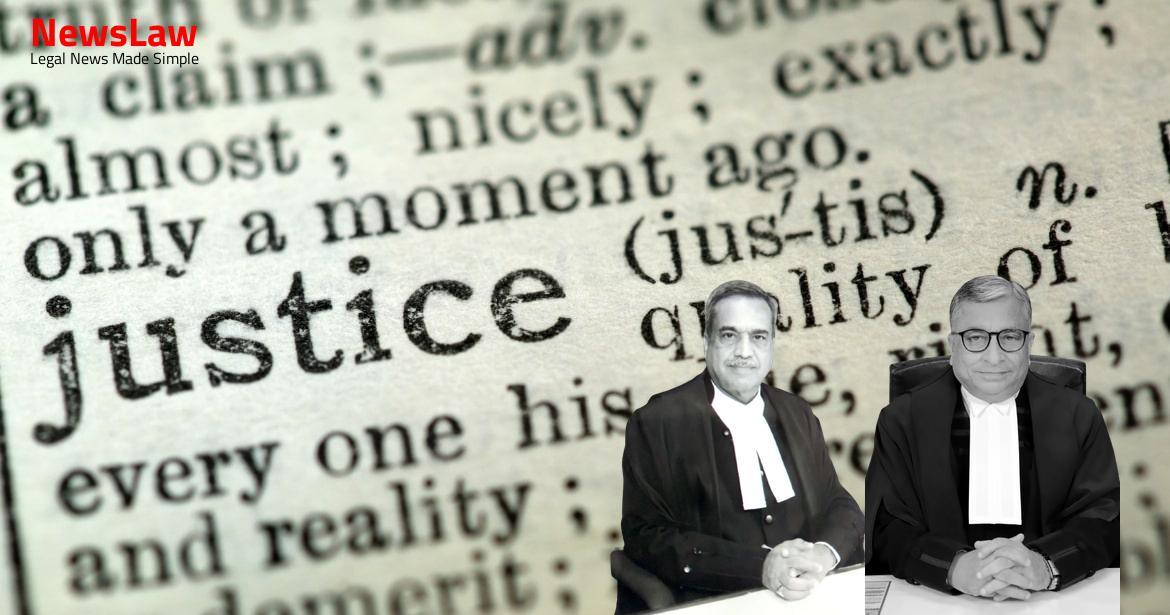Explore the in-depth legal examination conducted by the court regarding the provision of provisional registration for medical students who completed their training abroad. The court’s analysis focused on discrepancies in documents, the necessity of practical training for medical practice, and the balance between ensuring quality education and addressing challenges faced by students due to the pandemic and recent crisis in Ukraine.
Facts
- Appeals filed against orders of the High Court of Judicature at Madras regarding quashing of circulars issued by the Tamil Nadu Medical Council.
- Students joined medical colleges in China and completed nine semesters including clinical training on campus.
- Due to COVID-19, some training done online; granted MBBS degree by Foreign Institute.
- Writ petitions listed for clarification by the High Court.
- The Court analysed the reasons for the denial of provisional registration to the student.
- The Medical Council justified the decision based on discrepancies in documents submitted by the student.
- The Court noted that the discrepancies were of minor nature and did not warrant such a harsh decision.
- It was pointed out that the student had passed all required exams and met the necessary qualifications for provisional registration.
- The Court directed the Medical Council to grant provisional registration to the student based on the evidence presented.
Also Read: Landmark Judgment on Compensation for Fatal Accident
Arguments
- The petitioner argued that the students had completed their curriculum in the foreign institute according to the certificate granted by the institute.
- The argument presented is that since the student has been declared qualified by the Foreign Institute, the only requirement before provisional registration is qualifying in the Screening Test in terms of the Screening Test Regulations.
- The judgment delivered after the amendment does not prove the clinical experience gained by the students.
- The contention is that online clinical training cannot satisfy the requisite condition of the Screening Regulations as it involves actual training with patients.
- Granting provisional registration without undergoing clinical training would compromise the health infrastructure of the country.
- The completion of the medical course abroad is permitted based on the endorsement that it entitles the students to practice in the foreign country, indicating the necessity of practical training for medical practice.
- The Courts are not experts in deciding an academic curriculum or clinical training requirements.
- The appellant is directed to frame a one-time scheme within two months to allow students who have not completed clinical training to undergo it in Indian medical colleges identified by the appellant for a limited duration.
- The charges for the clinical training will be determined by the appellant.
- The appellant can test the candidates within the next month to ensure they are sufficiently trained for provisional registration to complete a 12-month internship.
- The scheme is a one-time measure to address challenges faced by students studying abroad due to the pandemic and the crisis in Ukraine while maintaining the quality of medical education in India.
Also Read: Land Acquisition Compensation Analysis
Analysis
- The argument that a student’s right can be enforced independent of court orders is not valid.
- Reference was made to the case of Chandigarh Administration v. Jagjit Singh.
Also Read: Judicial Review of Search and Seizure Authorization
Case Title: NATIONAL MEDICAL COMMISSION Vs. POOJA THANDU NARESH (2022 INSC 494)
Case Number: C.A. No.-002950-002951 / 2022



